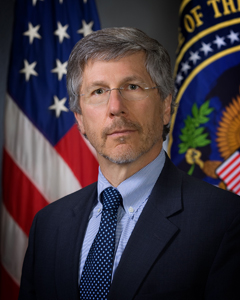Some Thoughts on the Coats-Rogers Testimony and Executive Privilege
The spectacle of DNI Coats and NSA Director Rogers fumbling for unconvincing excuses to avoid answering Senators’ questions about whether President Trump asked them to intervene to halt the Russia investigation obscures the fact that they could have asserted a proper basis for doing so.
Published by The Lawfare Institute
in Cooperation With

The spectacle of DNI Coats and NSA Director Rogers fumbling for unconvincing excuses to avoid answering Senators’ questions about whether President Trump asked them to intervene to halt the Russia investigation obscures the fact that they could have asserted a proper basis for doing so.
The suggestion, floated briefly by Rogers, that they were acting to protect classified information seems unsupportable. But there is at least a colorable basis to claim that conversations about governmental business between the President and his top appointees are protected by the presidential communications privilege.
It may be that if challenged in court, such a claim would not be upheld, because of waiver, or the subject of the communication, or a balancing of needs. But the privilege belongs to the President, and inferior officers should not take it upon themselves to disclose such communications without express permission from the White House. Certainly that is how these issues were handled in the Obama Administration: when Congress asked an agency for information about presidential communications, as it often did, the agency consulted with the White House to see if there were objections to responding.
Rogers testified that he had asked the White House whether it was asserting privilege and never got a response. It’s not clear whether this reflects the apparent dysfunction in White House operations (Jack Goldsmith has written about his concerns about the effectiveness of the White House Counsel’s office) or a conscious tactical decision.
But in the absence of clear direction from the White House, it would have been far better if Coats and Rogers had responded by straightforwardly stating, “You are asking about communications with the President that may be protected by privilege. I have not gotten permission from the White House to disclose these communications, and will not answer your question until that issue is resolved.” The dispute could then have been appropriately resolved between Congress and the White House.
Of course, that would have made the problem the President’s, and the White House may not have wanted that responsibility. That may be why these two honorable public servants threw themselves on their swords so embarrassingly.
One final point: Coats’s repeated statement that he would be willing to talk more freely in a closed setting is inconsistent with protecting a legal privilege. If this communication is privileged, it is privileged from disclosure to Congress in any setting. And if it’s not, it can be discussed in open session.





